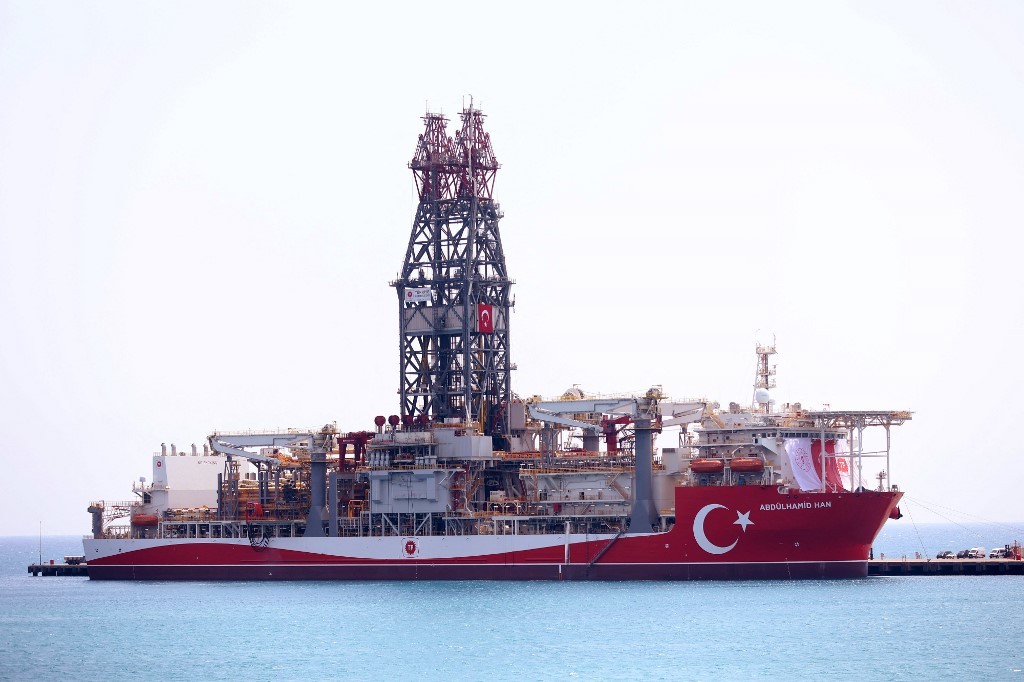Turkey on Tuesday sent its newest drill ship on the first eastern Mediterranean energy exploration mission in nearly two years, Agence France-Presse reported.
The search for natural gas in energy-rich waters around the divided island of Cyprus has turned into an irritant in Turkey’s ties with the European Union.
President Recep Tayyip Erdoğan said the Abdulhamid Han drill ship — the fourth built by Turkey — will be sent to an undisputed area about 55 kilometers (34 miles) south of the city of Gazipaşa.
But he also brushed aside Greek and Cypriot objections to such missions and said Turkey had the right to search for energy in areas it claims as its own.
The Abdulhamid Han is “the symbol of Turkey’s new vision in the area of energy,” Erdoğan said at the sending-off ceremony in the southern city of Mersin.
Tensions rose between Ankara and Brussels in 2020 after Turkey sent a seismic research vessel and a drill ship into contested waters claimed by Greece and Cyprus.
A Greek and a Turkish warship that were shadowing one of the exploration missions became entangled in a small collision in the Mediterranean that August.
The designated area for Abdulhamid Han is north of Cyprus and well removed from disputed regions of the sea.
But Erdoğan warned that Turkey reserved the right to search for gas in disputed waters claimed by Ankara.
“Our ship will not stop, she will go to other wells and continue to search [for gas] until she finds it,” Erdoğan said.
“The drilling work we do in the Mediterranean is within our own jurisdiction. We don’t need anyone’s permission.”
Turkish media reported that the ship would be exploring gas until Oct. 7.
Energy-hungry Turkey is dependent on outside sources to meet its growing needs.
Russia accounted for about a quarter of Turkey’s oil imports and 45 percent of its natural gas purchases last year.
“The sooner we can increase our natural gas and oil resources, which have turned into weapons in the global economic crisis, the more advantage we will gain in this critical process,” Erdoğan said.
“It will help us both reduce our energy dependency and close our current account deficit.”


